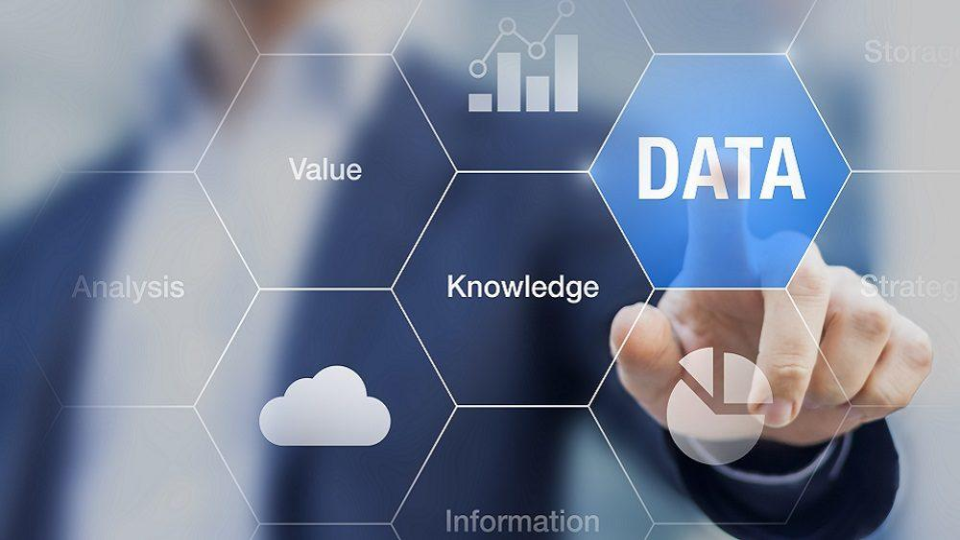Data Analytics: The Key to Building Lead Generation Strategies
Nowadays, data is a powerful tool that fuels almost every aspect of business operations. Whether it's improving customer experiences or optimizing supply chain processes, it plays a critical role in shaping decisions. For businesses to thrive, they need to identify, attract, and nurture potential customers effectively. This is where the combination of Big Data Analytics and lead generation strategies come into play.
As companies increasingly shift toward data-driven decision-making, professionals equipped with both the analytical skills from Big Data programs and a deep understanding of lead generation are in high demand. Before diving into how Big Data Analytics prepares you to excel in lead generation, let's understand the concept of data-driven lead generation.
The Growing Importance of Data-Driven Lead Generation
In essence, this approach leverages data and analytics to identify high-potential leads, evaluate their behaviors, and create targeted marketing strategies. Traditionally, lead generation relied heavily on manual methods, guesswork, or superficial data like basic demographic information. However, with the explosion of digital touchpoints, businesses now have access to vast amounts of data—ranging from website interactions to social media behaviors and purchase histories.
The key challenge is interpreting this information and using it effectively to attract and convert leads. This is where Big Data Analytics becomes indispensable. By processing large volumes of data, applying advanced algorithms, and generating actionable insights, businesses can take a more personalized approach to lead generation and target potential customers with pinpoint accuracy.
Why Data-Driven Lead Generation is Crucial for Business Growth
Businesses face an overwhelming amount of data every day. From customer emails to social media interactions, data sources are everywhere. Companies that excel at data-driven lead generation can surf through these oceans of information to extract valuable insights and predict future behaviors. The benefits of using data for lead generation include:
a. Improved Accuracy: Data-driven strategies allow companies to pinpoint leads that are more likely to convert, reducing wasted marketing efforts.
b. Personalization: Businesses can deliver personalized experiences, which can significantly increase lead engagement and conversion rates.
c. Efficient Allocation of Resources: With predictive analytics, companies can determine where to focus their marketing efforts, ensuring a higher return on investment (ROI).
How Big Data Analytics Prepares You for Lead Generation
Big Data Analytics equips you with a wide array of skills and knowledge that can be applied directly to data-driven lead generation. Here are several key ways that this prepares you for success in this domain:
1. Understanding the Fundamentals of Big Data and Analytics
One of the most crucial aspects of Big Data Analytics is it provides a strong foundation in the core principles of data analysis. SBeginners learn how to handle large volumes of data, understand data structures, and apply statistical techniques to derive actionable insights. For lead generation, this means understanding where to find data, how to extract relevant information, and how to process it to generate leads. Big Data programs also cover tools like SQL, Python, and R, which are essential for data manipulation and analysis. These technical skills allow professionals to develop models that can predict lead behavior based on historical data and trends.
2. Learning to Use Advanced Analytics Tools
In a Big Data Analytics program, you’ll become proficient with advanced analytics tools and platforms, such as Hadoop, Spark, and Tableau. These tools allow you to manage and analyze massive datasets, uncover patterns, and create visualizations that highlight key insights. For lead generation, tools like these can efficiently process customer data, analyze trends in purchasing behavior, and create visual reports that can guide marketing decisions.
For example, by using customer data, businesses can analyze which marketing channels yield the highest ROI and adjust their campaigns accordingly. To further enhance your skills, consider enrolling in a practical data analytics course, which provides hands-on experience with these tools, enabling you to apply your learning directly to real-world scenarios.
3. Mastering Predictive Analytics
Predictive analytics is one of the most valuable skills for anyone involved in lead generation. Predictive models help businesses forecast future customer behaviors based on historical data, enabling them to tailor their strategies to meet potential leads' needs. With Big Data analytics skill, you'll learn how to build and train machine learning models that predict lead conversion likelihood.
For instance, by analyzing data from past marketing campaigns, you can predict which leads are most likely to respond to certain marketing efforts, allowing businesses to focus their efforts on the highest-value prospects. This predictive approach reduces the amount of time and resources spent on cold leads and increases conversion rates by focusing on leads that have shown similar behaviors in the past.
4. Applying Data Visualization Techniques for Better Decision-Making
Another key component of a Big Data Analytics is the ability to present data in a way that non-technical stakeholders can easily understand. When it comes to lead generation, being able to visualize trends and behaviors is critical for identifying areas of improvement. For example, by using data visualization tools like Tableau or Power BI, professionals can create dashboards that show how different lead generation tactics are performing, helping marketing teams adjust strategies in real-time.
5. Developing Data-Driven Customer Persons
One of the most effective ways to generate quality leads is by creating highly-targeted marketing campaigns tailored to specific customer personas. Big Data Analytics teaches students how to segment and analyze customer data to develop these personas accurately. By examining historical data and identifying patterns in customer behavior, you can build detailed personas that represent various segments of your target audience.
For example, a company that sells software to small businesses might find through data analysis that businesses in certain industries respond more favorably to particular features. With this knowledge, they can target those specific industries with relevant content, increasing lead engagement.
6. Focusing on Data Privacy and Ethical Considerations
While data is an incredibly powerful asset, its use comes with significant responsibilities, especially when it comes to handling customer data. Big Data Analytics program often includes coursework on data privacy, security, and ethical considerations. When generating leads, it’s crucial to ensure that data collection methods are transparent, comply with regulations such as GDPR or CCPA, and respect consumer privacy.
7. Understanding Consumer Behavior Through Big Data
Big Data Analytics allows students to dive deep into understanding consumer behavior. By using data from various sources, such as social media, website analytics, and transaction records, you can analyze how consumers interact with your brand, products, or services.Understanding the behavioral patterns of potential leads allows businesses to predict when and how a lead will likely convert, making their marketing efforts more timely and relevant. Additionally, consumer behavior analysis helps identify bottlenecks in the customer journey, providing insights into improving the overall lead conversion process.
Conclusion
Big Data Analytics provides a powerful skill set that is directly applicable to data-driven lead generation strategies. From mastering predictive analytics to understanding customer behavior and applying data visualization techniques, professionals with this degree are well-equipped to make informed, data-driven decisions that significantly improve lead quality and conversion rates.
As more businesses adopt data-driven approaches, expertise in Big Data Analytics will be a significant competitive advantage in lead generation.







